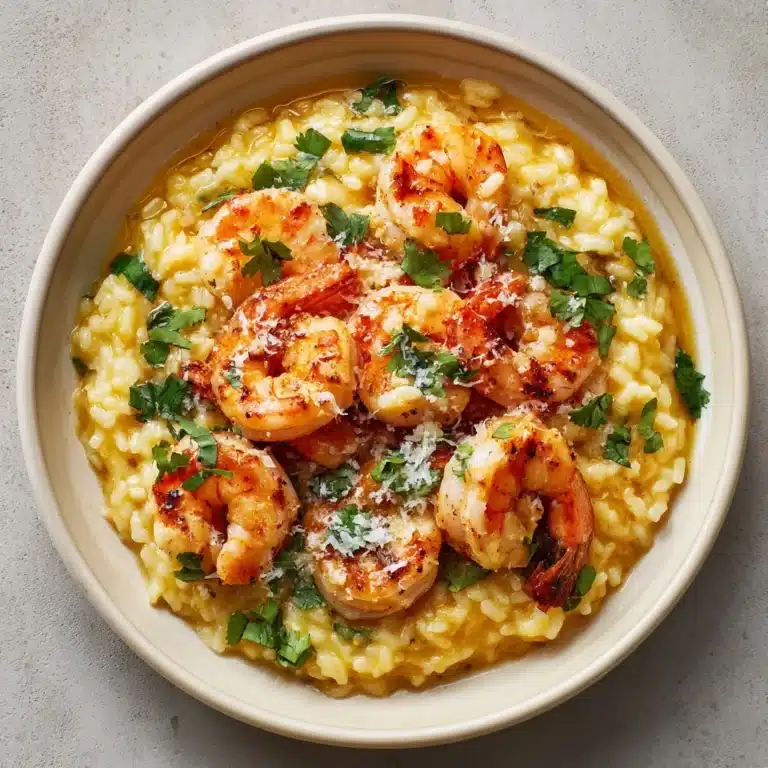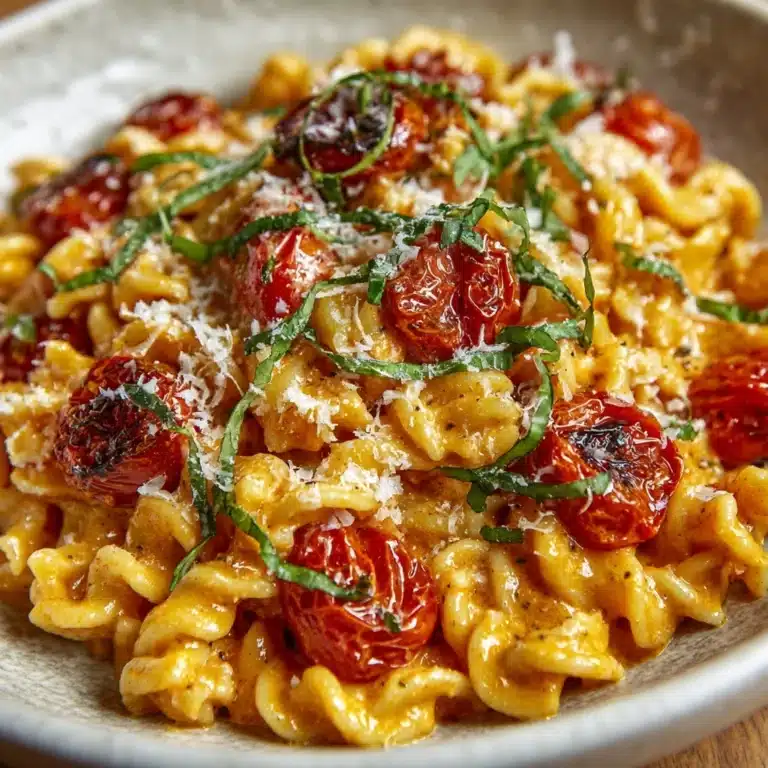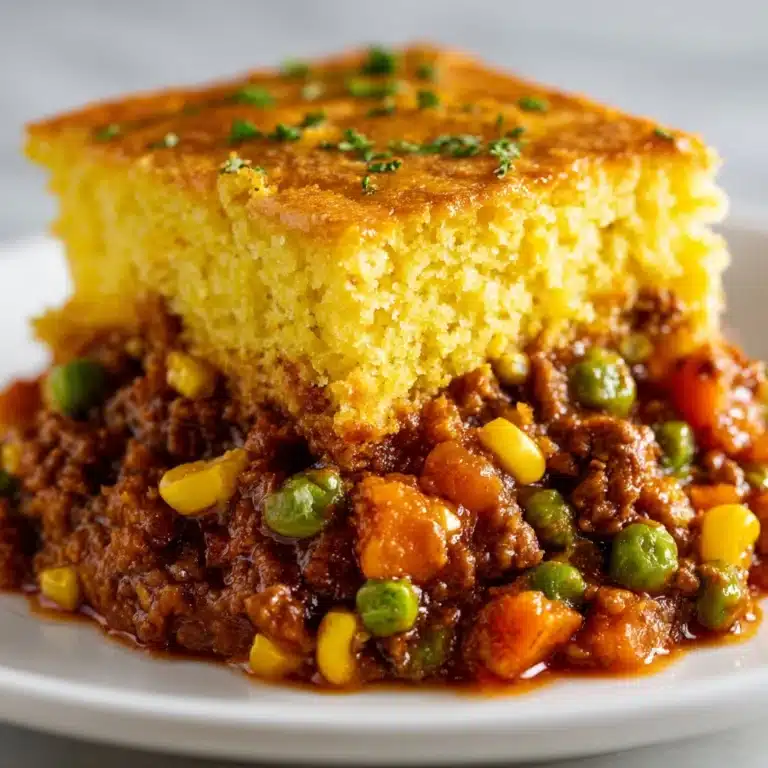Dublin Coddle Recipe
If you’re searching for a soul-warming Irish classic that’s as cozy as an evening in a Dublin pub, Dublin Coddle is the answer. This stew layers hearty chunks of sausage, smoky bacon, tender potatoes, and sweet onions, all simmered gently together in a savory broth with a splash of Guinness for good measure. The result? Comfort food at its finest, brimming with tradition and flavor. Dublin Coddle is the kind of dish that brings family and friends together, perfect for chilly nights or any gathering where you want pure, unpretentious deliciousness.
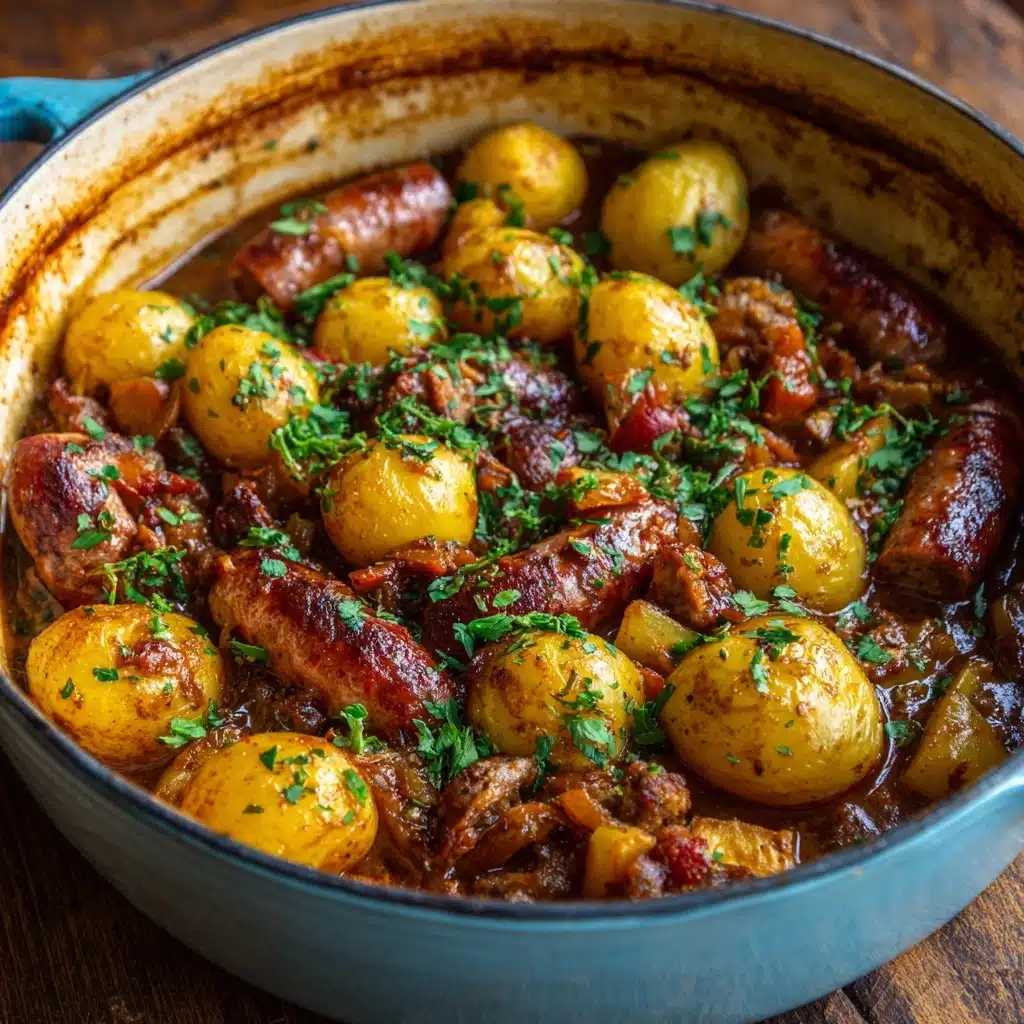
Ingredients You’ll Need
Dublin Coddle comes to life with humble, straightforward ingredients—each one playing a role in building layers of flavor and texture. Let’s take a look at what you’ll need and why they matter.
- Pork sausages (1 pound, preferably Irish-style): Choose high-quality, meaty sausages for hearty bites and deep savory flavor—traditional Irish sausages work best, but any good pork sausage will do.
- Thick-cut bacon (8 slices): Smokiness and richness from bacon infuse the whole coddle and provide wonderful depth.
- Potatoes (4 large, peeled and sliced): A generous amount of potatoes soaks up all those delicious juices while giving the stew its comforting, tender heart.
- Onions (2 large, sliced): Sliced onions turn meltingly sweet and flavorful as they bake and meld into the broth.
- Chicken broth (2 cups): The base of the liquid—choose a good-quality broth for richer flavor and a fuller bodied coddle.
- Guinness or stout beer (1 cup, optional): Adds a deep malty note; if you prefer a milder flavor, replace it with more broth as noted in the recipe.
- Fresh parsley (2 tablespoons, chopped): A sprinkle on top brightens every serving with color and herby freshness.
- Salt and pepper (to taste): Essential seasoning to bring out all the savory flavors of the coddle—taste as you go!
How to Make Dublin Coddle
Step 1: Prepare Your Oven and Pot
Start by preheating your oven to 325°F (160°C). Grab a large, ovenproof pot or casserole dish—cast iron works beautifully if you have one. This will give all those lovely flavors space to mingle as they bake low and slow.
Step 2: Layer the Goodness
Peel and slice the potatoes, then layer half of them in the bottom of your pot. Follow with half of the sliced onions, sausages (cut or whole as you like), and strips of bacon. Season generously with salt and pepper, and then repeat the layers with the rest of your ingredients. This simple layering is what gives Dublin Coddle its signature rustic appeal.
Step 3: Add the Liquid
Pour the chicken broth and Guinness (or extra broth if you’re skipping the beer) over your layered ingredients. You want the liquid to mostly cover the top layer, ensuring every bite is tender and flavorful after baking.
Step 4: Cover and Bake
Put a tight-fitting lid or some snug foil over your dish. Bake in the preheated oven for 2 hours. During this time, the sausages and bacon will bathe the potatoes and onions in their savory juices, and everything becomes meltingly tender—the true magic of Dublin Coddle.
Step 5: Finish and Garnish
Once your coddle is bubbling and fragrant, carefully remove it from the oven. Scatter freshly chopped parsley across the top for a burst of color and earthy brightness. Let it cool just slightly before ladling into bowls—this is comfort food, after all, and it’s best served piping hot.
How to Serve Dublin Coddle
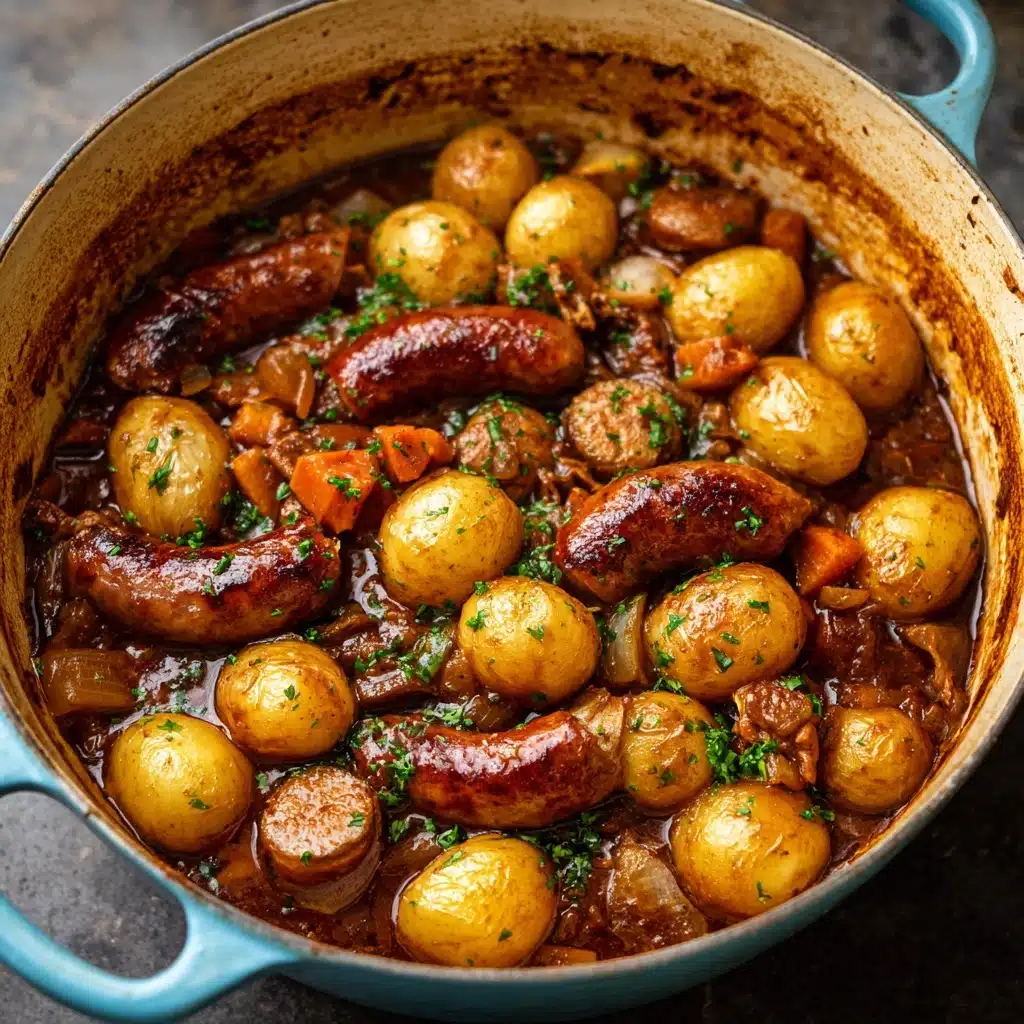
Garnishes
A simple shower of fresh parsley wakes up every bowl of this rustic coddle, adding fragrance and bright green flecks. For a little extra zest, a grinding of black pepper or a few thinly sliced scallions can also make a lovely finishing touch.
Side Dishes
Dublin Coddle pairs perfectly with crusty Irish soda bread for soaking up all that flavorful broth. You could also serve it alongside creamy mashed potatoes or a crisp, peppery salad for a bit of balance. On a chilly day, nothing beats a coddle with a malty pint of Guinness or hot strong tea on the side.
Creative Ways to Present
For a fresh twist, try spooning Dublin Coddle into individual ovenproof bowls and topping with a buttered breadcrumb crust for the last 10 minutes of baking—like a hearty Irish casserole. For a party or St. Patrick’s Day feast, serve coddle in small cups for an easy, crowd-pleasing starter.
Make Ahead and Storage
Storing Leftovers
Let any leftover Dublin Coddle cool to room temperature before transferring to an airtight container. It’ll keep happily in the fridge for up to 3 days, and honestly, the flavors get even better as they sit together.
Freezing
Dublin Coddle freezes beautifully! Portion cooled stew into freezer-safe containers, leaving a little room for expansion. Freeze for up to 2 months. Thaw overnight in the refrigerator before reheating for best texture and flavor.
Reheating
Gently reheat leftovers on the stovetop over low heat, stirring occasionally, until hot throughout. You can also microwave individual portions, but I recommend adding a splash of broth to keep everything moist and delicious.
FAQs
Can I use different types of sausages in Dublin Coddle?
Absolutely! While Irish-style pork sausages are traditional, feel free to use whatever hearty sausage you like—bangers, bratwurst, or even plant-based sausages for a pescatarian or vegetarian option.
Do I have to include beer, or can I skip it?
The stout or Guinness gives a gorgeous depth to the broth, but it’s totally fine to substitute with more chicken broth for a gentler flavor. This keeps the Dublin Coddle family-friendly and just as comforting.
Can Dublin Coddle be made on the stovetop?
Yes! You can assemble and simmer the entire dish gently on your stovetop, covered, for about 90 minutes. Stir occasionally and keep an eye on the liquid, adding more broth if needed to keep everything moist.
What’s the best potato to use?
Floury potatoes like Russets or Yukon Golds are ideal for Dublin Coddle; they soften beautifully and absorb all the magnificent flavors. Just make sure to slice them evenly so they cook at the same rate.
Is this dish suitable for meal prep?
Dublin Coddle is actually better when made ahead, as the flavors have more time to develop. Make a batch on Sunday and enjoy warming dinners throughout the week—simply reheat and serve!
Final Thoughts
There’s just something magical about a bubbling pot of Dublin Coddle—it’s the flavor of Irish hospitality and the kind of meal that brings warmth and cheer to any table. I hope you’ll give this classic recipe a try. Once you’ve tasted how all those simple ingredients come together, you’ll want to make it a regular in your cozy-cooking rotation!
Print
Dublin Coddle Recipe
- Total Time: 2 hours 15 minutes
- Yield: 4 servings 1x
- Diet: Non-Vegetarian
Description
Dublin Coddle is a traditional Irish dish that combines sausages, bacon, potatoes, and onions in a flavorful stew. This hearty and comforting meal is perfect for a cozy dinner on a cold evening.
Ingredients
Sausage Layer:
- 1 pound pork sausages (preferably Irish-style)
Bacon Layer:
- 8 slices thick-cut bacon
Potato Layer:
- 4 large potatoes, peeled and sliced
Onion Layer:
- 2 large onions, sliced
Broth and Seasoning:
- 2 cups chicken broth
- 1 cup Guinness or stout beer (optional)
- 2 tablespoons fresh parsley, chopped
- Salt and pepper to taste
Instructions
- Preheat Oven: Preheat oven to 325°F (160°C).
- Layer Ingredients: In a large ovenproof pot or casserole dish, layer half the potatoes, onions, sausages, and bacon. Season with salt and pepper. Repeat layers with remaining ingredients.
- Add Liquids: Pour chicken broth and Guinness over the layers.
- Bake: Cover tightly with a lid or foil and bake for 2 hours until potatoes are tender and flavors meld.
- Garnish and Serve: Garnish with chopped parsley before serving.
Notes
- Substitute beer with more chicken broth for a milder flavor.
- Use high-quality sausages for best taste.
- Traditionally, leftover sausages and bacon are used, making this a great comfort dish.
- Prep Time: 15 minutes
- Cook Time: 2 hours
- Category: Main Course
- Method: Baking, Braising
- Cuisine: Irish
Nutrition
- Serving Size: 1 plate
- Calories: 550
- Sugar: 3 g
- Sodium: 900 mg
- Fat: 35 g
- Saturated Fat: 12 g
- Unsaturated Fat: 18 g
- Trans Fat: 0 g
- Carbohydrates: 30 g
- Fiber: 4 g
- Protein: 30 g
- Cholesterol: 120 mg
